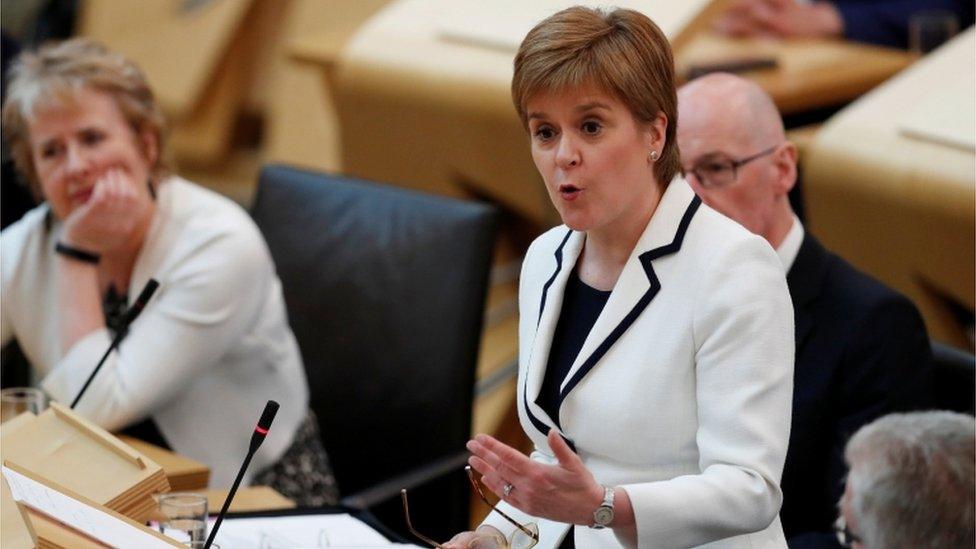Davidson: Next PM should continue to refuse indyref2
- Published
Ruth Davidson: "If the majority of Scots need a voice to stand up to Nicola Sturgeon, then I will be that voice."
The next UK prime minister should continue to refuse to back a new vote on independence, Scottish Conservative leader Ruth Davidson has said.
The Edinburgh Central MSP has been on maternity leave since October, when she gave birth to her son, Finn.
She is returning to work the week after First Minister Nicola Sturgeon called for an independence referendum by 2021.
But Ms Davidson told BBC Scotland that she and the majority of Scots did not want another poll to be held.
She also said Brexit was a "mess" and called on politicians to work together to find a compromise solution.
Ms Davidson is returning to the political front line ahead of the Scottish Conservative conference, which starts on Friday in Aberdeen.
In an exclusive interview with BBC Scotland, she said it would be "tough to tear myself away from the wee man" to come back to Holyrood, but said that "having a child and coming back to work is a part that lots of women play".
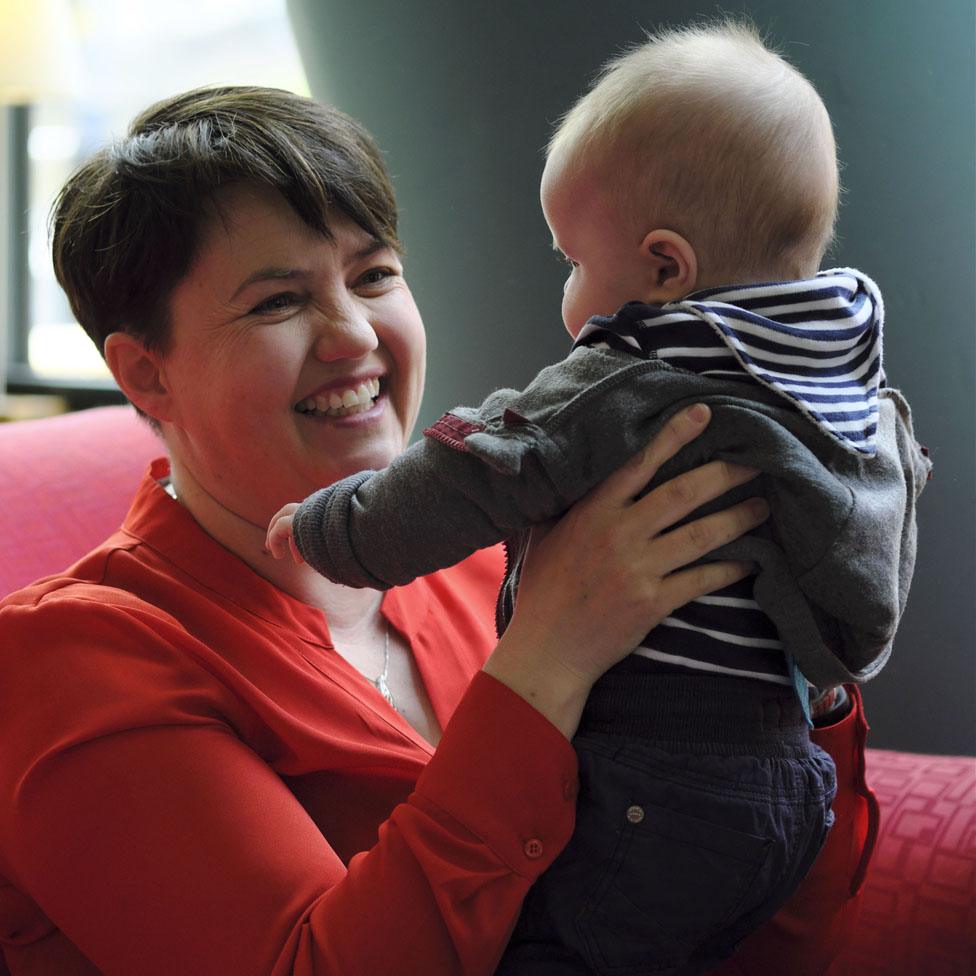
Ruth Davidson is returning to full-time politics after maternity leave following the birth of her son Finn
Her return also follows Ms Sturgeon's Holyrood statement setting out plans for a second independence referendum, with legislation for such a vote due to be tabled in May.
The SNP leader wants to get the agreement of the UK government before calling a vote, but this has been ruled out by several senior members of the prime minister's cabinet.
On Sunday Ms Sturgeon told her party's conference that if support for independence was "surging", then "no Westminster government can ever stand in the way of Scotland's right to choose".
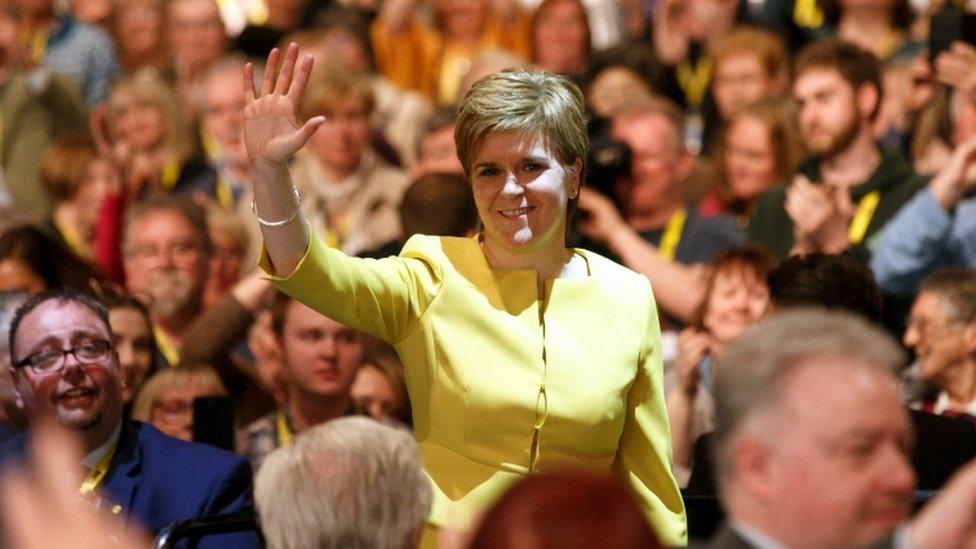
Nicola Sturgeon wants the UK government to agree to holding a new independence poll
Asked about the UK government agreeing to a new referendum, Ms Davidson said that "I'll say no, and this prime minister and the next prime minister should say so too".
The Scottish Conservative leader said the agreement underpinning the 2014 vote had been signed on the basis it would settle the matter in the long term.
She said: "Nicola Sturgeon doesn't agree with Nicola Sturgeon on this. Not only is she going back on the Edinburgh Agreement that she signed, where she said she would respect the result for a generation, the test she put down for any future referendum before the last election would be that the majority of Scots would want it.
"The majority of Scots don't want this, and if they need a voice to stand up to Nicola Sturgeon, I will be that voice.
"I don't agree with re-running a referendum in which the main signatories - including Nicola Sturgeon - said it would last for a generation. She's done everything she can to rip that agreement up since then."
'Actively campaigning'
Ms Davidson had previously said the UK government should not stand in the way of a second referendum, telling the BBC's Sunday Politics Scotland programme in 2016 that "constitutionally the UK government shouldn't block it, no".
Pressed about this, she repeated that "it's very clear that a majority of Scots don't want it".
She said: "I'm saying that [Nicola Sturgeon] doesn't fulfil her own criteria for a second referendum. I don't agree with holding one, and I will be actively campaigning for one not to take place.
"And were one to take place, I would actively campaign for Scotland to stay in the UK."
SNP deputy leader Keith Brown responded that support for independence was "on the rise", and said the Tories were "running scared" with their "utterly undemocratic move to block the people of Scotland having a say".
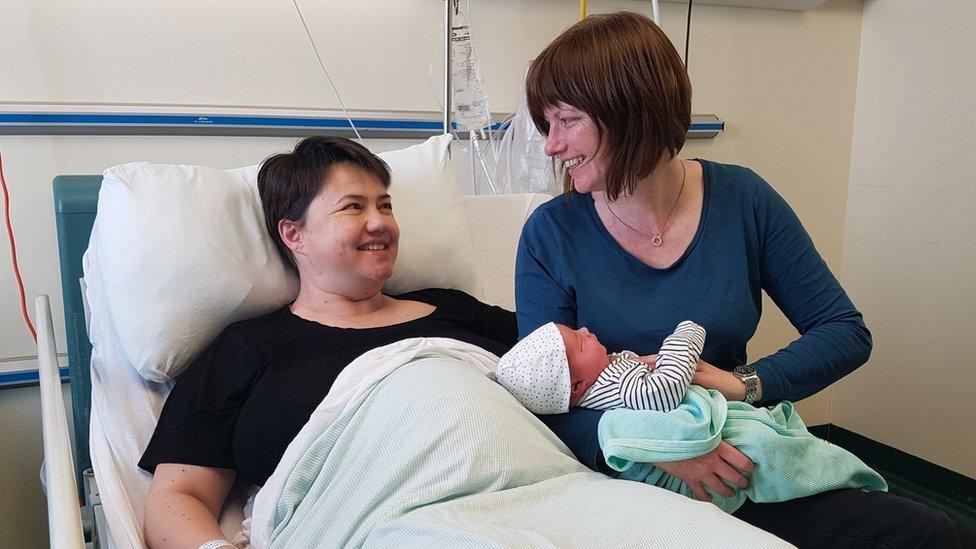
Ms Davidson tweeted a picture of herself with Finn and her partner Jen Wilson
Ms Sturgeon's referendum plan is built around a response to Brexit, something she called "an unforgivable act of Tory sabotage on our country".
However, she also told her conference on Sunday that the SNP's "policy is no Brexit", saying her MPs "will not vote for a Tory Brexit and will not vote for a Labour Brexit".
Ms Davidson said that from watching from home, Brexit "looks like a bit of a mess", adding that "a lot of people are wondering why we haven't gone yet".
She said: "My message to colleagues both in my party and others is now is the time, instead of sticking in your trenches and hoping everyone moves to you, is to take that first step forward and start that compromise that clearly needs to happen.
"If the country is going to come together, it does require politicians to come together first.
"We in Scotland know better than anyone that divisions with constitutional referenda often happen more after the vote has taken place, rather than in the run-up to it.
"We've got two sets of people in their trenches shouting at each other - on one side people demanding a second referendum and on the other demanding a no-deal Brexit.
"And actually for the country, the place where we can coalesce is somewhere in the middle. That's where I'm hoping we can get to, and where I'm encouraging colleagues to get to."
- Published29 April 2019
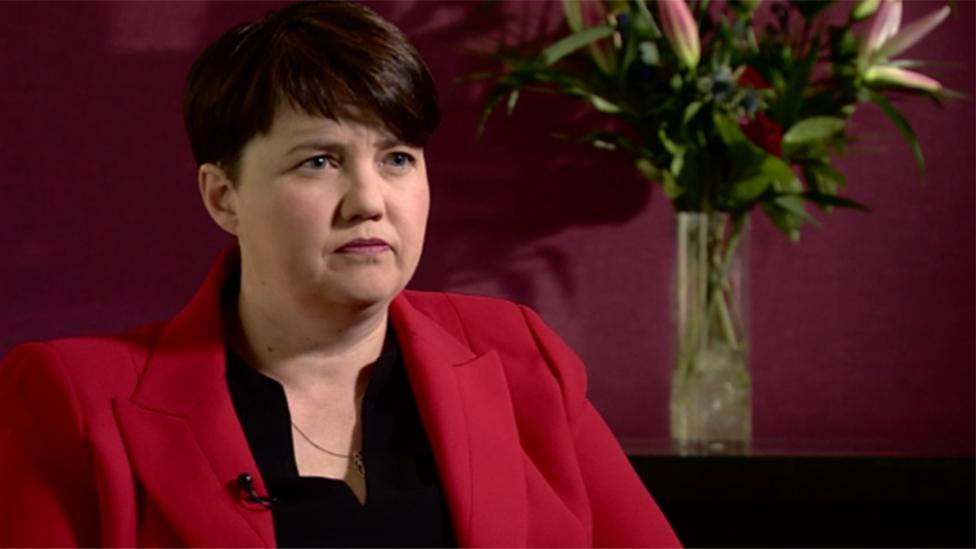
- Published24 April 2019
